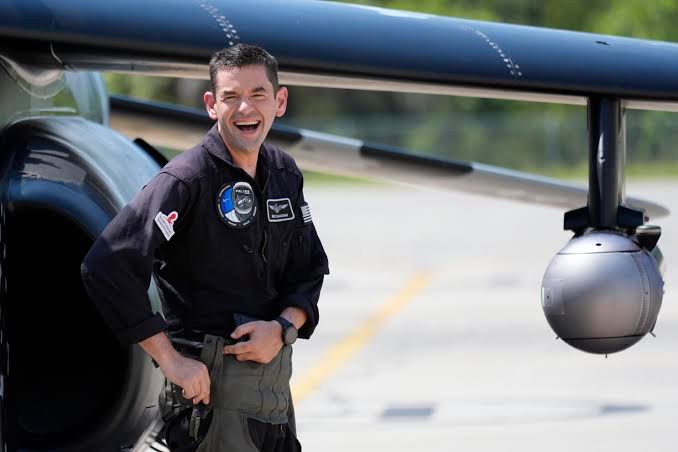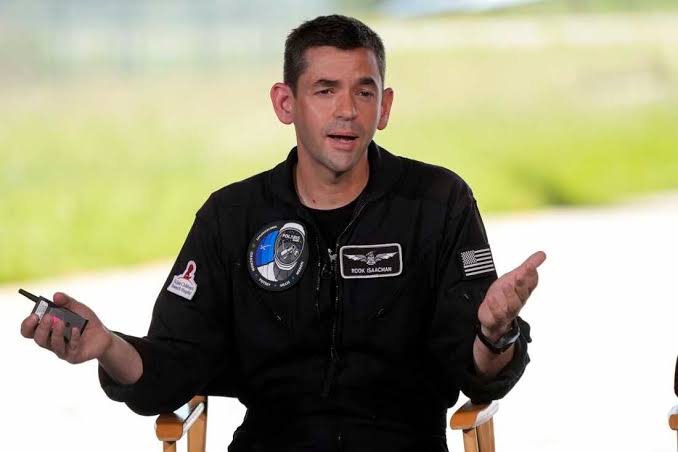Facebook Twitter (X) Instagram Somali Magazine - People's Magazine
In a surprising political move with implications for the future of U.S. space leadership, President Donald Trump has officially withdrawn his nomination of tech billionaire Jared Isaacman to head NASA. The announcement, made via Trump’s Truth Social account on Sunday, came after what the president described as a “thorough review of prior associations,” a veiled reference believed to point toward Isaacman’s long-standing ties with fellow tech mogul Elon Musk.
Jared Isaacman, the founder and CEO of Shift4 Payments and a recognized figure in the growing realm of commercial space exploration, had been tapped by Trump in December 2024 to lead the United States’ premier space agency. The 42-year-old entrepreneur rose to prominence after organizing private missions aboard SpaceX rockets, including conducting the world’s first private spacewalk. His nomination was widely seen as a bold step toward deepening NASA’s partnership with the private sector.

In his official post, Trump thanked Jared Isaacman but made clear that the administration was moving in a new direction. “After a thorough review of prior associations, I am hereby withdrawing the nomination of Jared Isaacman to head NASA,” Trump wrote. “I will soon announce a new Nominee who will be Mission aligned, and put America First in Space.” While the statement lacked further detail, the term “prior associations” has sparked speculation about growing political distance between the White House and Elon Musk, whose companies—Tesla, SpaceX, and X (formerly Twitter)—have played prominent roles in federal projects.
Isaacman responded with grace on X, the platform formerly known as Twitter, expressing gratitude for the nomination and the experience. “The past six months were enlightening and, honestly, a bit thrilling,” he wrote. “It may not always be obvious through the discourse and turbulence, but there are many competent, dedicated people who love this country and care deeply about the mission. That was on full display during my hearing, where leaders on both sides of the aisle made clear they’re willing to fight for the world’s most accomplished space agency.”
The Senate Commerce, Science, and Transportation Committee had approved Isaacman’s nomination in late April, and a full Senate confirmation vote was anticipated in the coming weeks. His withdrawal now sends NASA’s leadership into temporary uncertainty as the administration begins the search for a new nominee who aligns with its nationalist “America First in Space” vision.
Isaacman’s removal adds another layer to the unfolding drama around Elon Musk’s role in the Trump administration. Musk had recently announced his resignation from the Department of Government Efficiency (DOGE), a newly formed federal agency created under Trump’s second term. Musk, who once championed radical streamlining of government processes through DOGE, has grown increasingly distant from federal politics, and Isaacman’s withdrawal could be interpreted as collateral fallout from that evolving relationship.
Musk did not remain silent on the issue. Responding to the news on X, he posted, “It is rare to find someone so competent and good-hearted,” offering public support for Isaacman in the wake of the administration’s reversal.
This leadership shakeup comes at a time when NASA is attempting to navigate the growing complexity of space policy, balancing its historic governmental missions with the rapid commercialization of space. Isaacman was viewed as a bridge between the traditional NASA establishment and the new wave of private space pioneers. His exit may stall plans for deeper collaboration between NASA and commercial space operators, particularly SpaceX, which had worked closely with Isaacman on several high-profile missions.
As the Trump administration prepares to announce a replacement, all eyes will be on whether the next nominee continues the trend toward commercial partnership or signals a reassertion of centralized government control over America’s space future.

